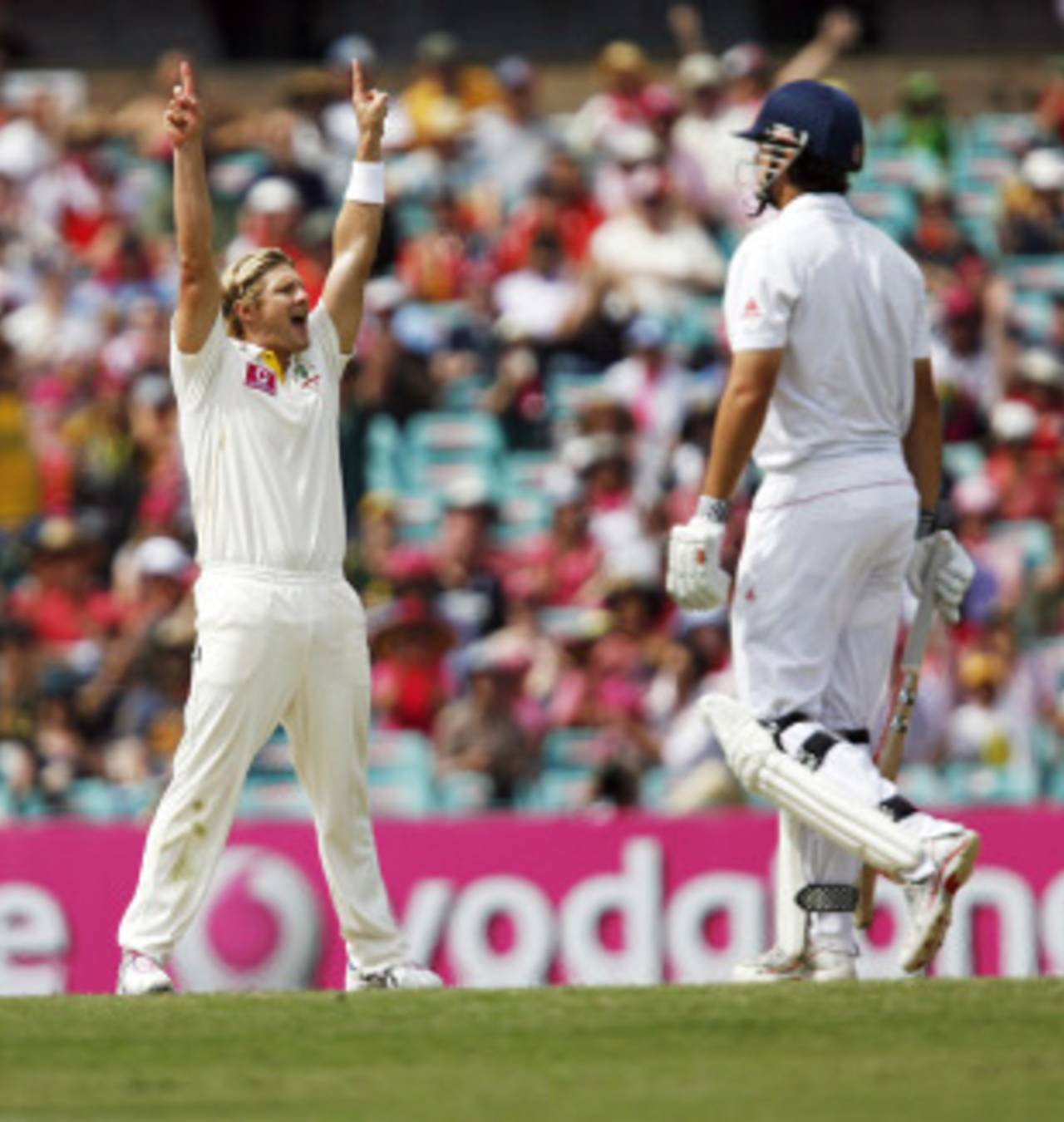Let us begin by listing the signs of promising improvement seen in the Australian cricket team today. Spinner Michael Beer did not bowl a no-ball. There end the signs of promising improvement.
The day dawned brimful of sparkle. Australia had not quite a half-chance but better than a quarter-chance of levelling this Ashes series 2–2. Rob Smyth, the Guardian’s majestic over-by-over wisecracker, thought this monstrously unjust. Like a ferret catcher with the smell of ferret in his nostrils, Smyth hunted down the following oddity: England’s batsmen, at the time of writing, were averaging 48.71 runs per wicket and Australia’s 29.37, a differential of 19.34, a differential like no differential England had ever known in the full sweep of Ashes history.
Hats off. It was a cracking stat. But it was about as relevant as pointing out that were this Ashes series played to Sheffield Shield rules (six points for a win, two points for a first-innings lead in a draw), then Australia (14 points) would top the table over England (12 points) – thanks to their fairly humungous 481 at the Gabba, and provided they did indeed win here in Sydney. Which pretty much immediately looked like a numpty-brained proviso.
This day first started to grate with the unveiling of a Steve Waugh statue between the changerooms and the practice nets. Immortalised in bronze was not Patrick Eagar’s 1989 Lord’s portrait of Waugh entering forward defensive heaven – left elbow to the sky, right knee grazing the turf – but Waugh in celebration pose, arms outstretched and baggy green doffed, after his last-ball-of-the-day ton in 2002–03. Boring – and not very likely to inspire a new generation of Stan McCabes among the boys being dragged to the cricket by their dads.
And then this day took a turn for the worse.
Five-day cricket is such a delicately balanced and structurally unimprovable invention, whereby the unforeseen happens almost daily yet still we don’t foresee it, that it is seldom ever dull. But from lunchtime onwards, the cricket gave the dictionary definition of “dull” a thorough working-over. The fielders were reduced to fetchers. The bowlers might as well have been lobbing mangoes: up they tossed, splat went the bat.
There was nothing for it but to dig into the filing cabinet and pluck out my treasured 1983–84 edition of the National Nine Tour Guide, with Imran Khan on the cover and Q&As with every Australian cricketer within cooee of making the Test team inside. For the seven-squillionth time in my life I marvelled at how neatly Australian cricketers of that era split into three camps: those whose favourite TV show was Minder (Wood, Chappell, Marsh, Boon, Dyson), those who liked the The Winners the best (Hughes, Marsh, Alderman) and those who preferred Fawlty Towers (Hogg, Yallop, Woolley).
I thought of the Australian XI of today, and how tidily, how uncannily, they too slot into three categories: Those I’d Stick With (Clarke, Watson, Khawaja, Hussey), Those I’d Consider Sticking With (Hughes, Smith, Beer) and Those I’d Probably Give The Flick (Haddin, Johnson, Siddle, Hilfenhaus).
Then I went back to my 1983–84 tour guide. Jeff Thomson’s favourite TV show? “All documentaries.” Carl – the Catherine Oxenberg of the bowling crease – Rackemann’s? “Dynasty.”
You know it is not your day when, on the 708th ball of the innings, your medium pacer gets one to nip in devilishly and ping the batsman in the cobblers and the batsman does not even rub them, he simply straightens up and smiles. That’s what happened when Shane Watson hit Ian Bell in the cobblers. That’s the kind of day the Australian cricket team had today.
Christian Ryan is a writer based in Melbourne. He is the author of Golden Boy: Kim Hughes and the Bad Old Days of Australian Cricket and, most recently Australia: Story of a Cricket Country
